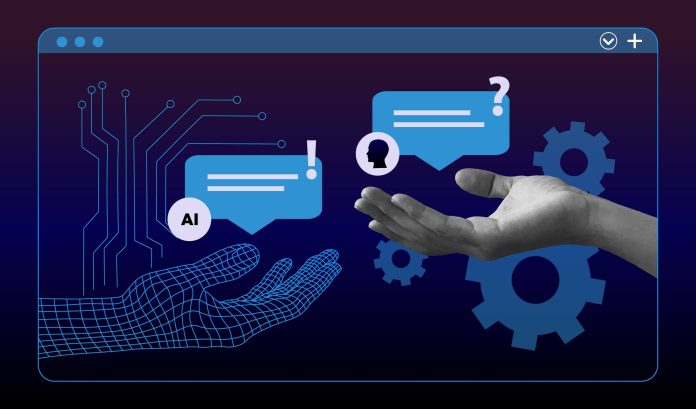
The best learning often happens on the job. An experienced professional notices what you’re doing, shares a tip, or nudges you in a better direction. This kind of learning sticks because it’s real, immediate, and relevant.
For centuries, apprenticeship has been the gold standard for passing down seasoned expertise, the kind of knowledge that’s acquired and mastered over the course of a career. A skilled expert guides an eager novice. But this model is tough to scale. In demanding fields such as broadband and telecom, our most experienced technicians and engineers are needed in the field—solving problems and keeping networks running. Pulling them away to train newcomers is costly and slows down critical work.
Trying to Scale Wisdom: What Gets Lost
Educators long have wrestled with the same challenge: How do you widely share deep expertise? We built classrooms, wrote books, recorded lectures, and moved courses online. Each innovation made knowledge more accessible but often less personal, less dynamic, and, in most cases, less effective.
Think about using online videos to fix something at home. Sometimes the instruction is enough. However, when the instructions aren’t quite right for your situation, you need more help than a generic video can provide. You want that expert standing beside you, saying, “Wait, on your model, you need to release this clip first.” That specific, contextual guidance is what’s missing from most scaled learning. We haven’t been able to replicate that personalized mentorship. Until now.
How AI Changes the Game
Artificial intelligence (AI) offers a new path. For the first time, we have tools that can respond dynamically, in the moment, based on what a learner is doing and what the learner has done before. AI can observe, recognize patterns, identify gaps, and suggest the next step. Beyond reciting static information, AI can provide tailored guidance.
Many of us in office roles see this already. AI helps draft e-mails, summarize notes, or structure ideas. Imagine that same power assisting a field technician facing a complex fiber splice or diagnosing a tricky signal impairment. AI, trained on the right knowledge, could offer insights much like a master craftsperson would, delivering the right suggestion at the right time for that specific situation. It’s a shift from static information delivery to dynamic, active mentorship at scale.
The Foundation: Why Trusted Knowledge Is Crucial
AI’s usefulness depends on the accuracy of the information on which it is trained. We have already seen the risks in AI models trained on unreliable Internet data—they invent facts, offer bad advice, and sound utterly confident while doing so. That’s unacceptable when guiding real-world work where safety and accuracy are paramount.
If we want AI to act as a trusted guide, it needs a bedrock of truth. This means that industry standards, technical specifications, and curated knowledge from research organizations are critical to an AI-enabled future. Organizations that develop standards accredited by bodies such as the American National Standards Institute (ANSI)—such as the Society of Cable Telecommunications Engineers (SCTE)—can play a unique and vital role. By providing authoritative, well-structured, and machine-readable documentation, these organizations ensure that AI tools are built on verified expertise, not unfounded opinions scraped from the Web. Turning this knowledge into something AI can readily use means structuring the information logically, writing clearly, and keeping it current. In this way, industry-certified knowledge can be a foundation of trustworthy AI, true artificial intelligence.
Experts Teach the System, Not Just the Novice
This will not make human experts obsolete. Instead, their roles will evolve. Rather than spending all their time directly training every individual novice, seasoned experts can shift their focus. They become the architects of the learning system, teaching the AI what excellence looks like. They define the best practices, curate the essential knowledge, and determine how mastery is demonstrated. Their deep experience shapes the AI mentor, scaling their wisdom far beyond what one person could achieve alone. This frees up time for experts to tackle higher-level challenges and advance their field.
Rethinking Skills Validation: Certification Gets Real
AI also allows us to reimagine how we validate skills. Today, we often pull technicians out of the field for standardized tests in artificial settings. What if we could assess competence based on the actual work they perform on the job?
Imagine an AI system observing a technician’s process during a real installation or repair, cross-referencing their actions against industry standards and best practices. This creates a continuous, contextual portfolio of proven skills—evidence gathered from real-world performance, not just exam scores. This will bring certification closer to its original intent: a master confirming that an apprentice truly understands their craft. AI cannot replace final human judgment, but it can help scale evidence-gathering activities and expedite validation.
Building the Future, Responsibly
This vision is particularly relevant now. Industries such as broadband are undergoing massive expansion and technological evolution, such as the move to 10G. The demand for a highly skilled workforce is immense. AI-powered learning offers a way to meet this demand, but only if we build it carefully.
We must ensure AI tools are built on a foundation of accurate, accredited, and well-structured knowledge. We must prioritize truth and safety over speed. Rushing ahead with untrusted AI is not only ineffective; it’s dangerous.
By investing in high-quality knowledge infrastructure today—standards, specifications, and curated learning content—we will enable AI to genuinely support our workforce. This will enable us to democratize access not just to information but also to expert guidance, helping every technician grow and succeed.
The future requires fusing the timeless value of apprenticeship with the scalable intelligence of AI. Building this future responsibly starts with a commitment to truth.



